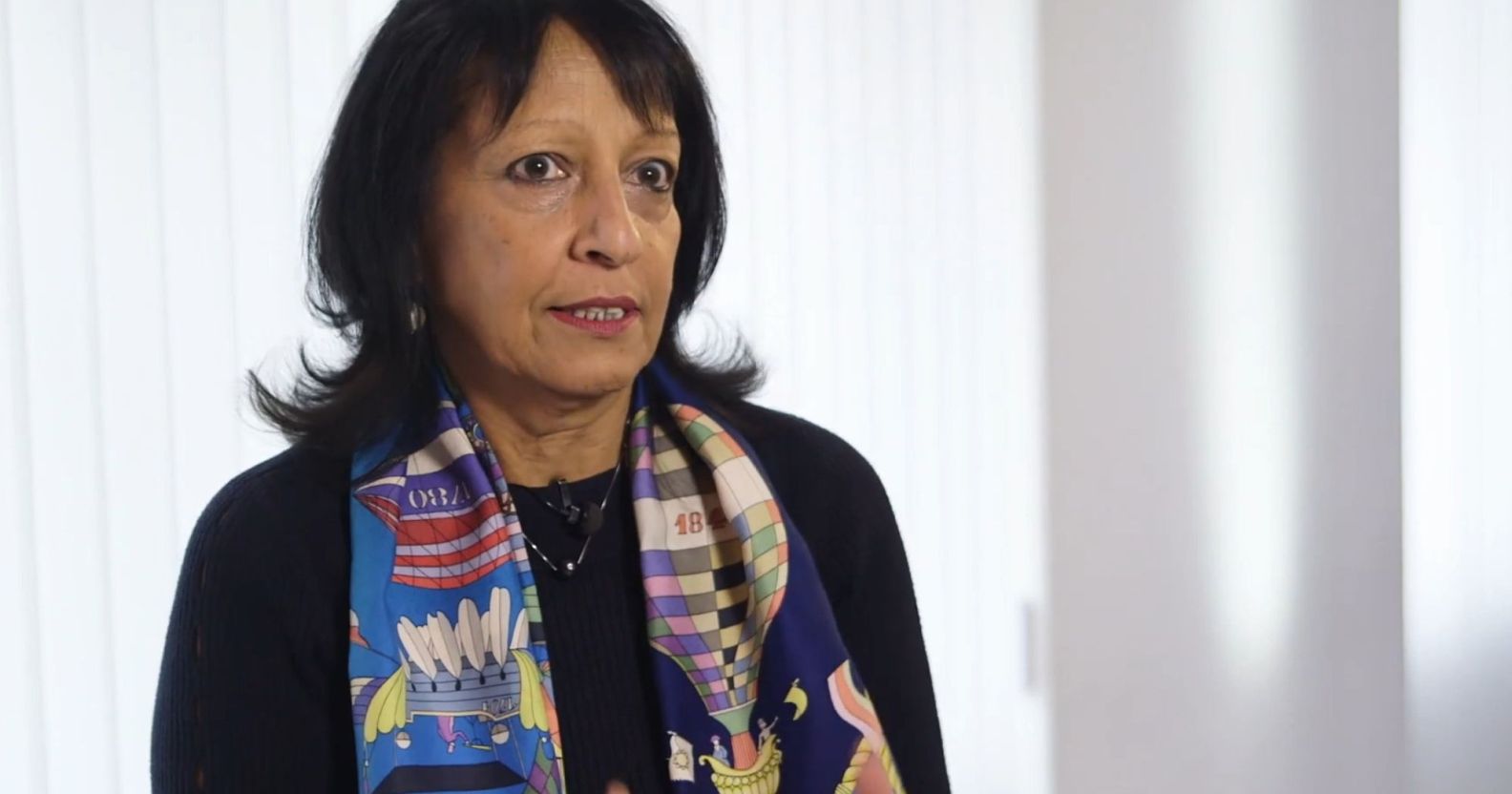EHRC chair under investigation for bullying allegations

Kishwer Falkner has been criticised on a number of occasions for her stance on trans issues. (Youtube/UBS Center)
The chair of the UK’s equalities watchdog is under investigation following allegations of workplace misconduct.
A Channel 4 report has found that “toxic culture” is allegedly engulfing the growingly-controversial human rights organisation after several discrimination claims were made against its chair, Kishwer Falkner.
Staff at the Equalities and Human Rights Commission (EHRC) have compiled a dossier of more than 40 complaints against Falkner
This reportedly includes accusations of discrimination, transphobia, bullying, and harassment.
One of the reported complaints claims that Falkner described trans quiz show contestant Emma Laslett as a “bloke in lipstick” during an official EHRC board meeting – an accusation that has been denied by the Commission’s Chief Executive.
Some of the complaints collected by Channel 4 cite “an increase in bullying, harassment and discrimination,” as well as a “lack of trust in the impartiality and independence of our Board.”
Staff turnover is also now increasingly high, especially among LGBTQ+ staff, with leaked figures suggesting one in four staff members left in 2022.
In a statement given to Channel 4, Falkner said she continues to work to “promote the principles of equality and human rights,” adding that she takes the allegations made against her “very seriously.”
“It was considered appropriate to investigate the allegations through an independent investigator,” she told the broadcaster.
“While that process continues, all I can do is explain that allegations were received in February in my capacity as Chair of the Commision.
“I will be cooperating fully with the investigation… and have every confidence in being exonerated.”
Falkner, who was appointed chair in 2020, has been routinely criticised for her stance on transgender rights, having made sympathetic comments towards ‘gender-critical’ views in the past.
Multiple employees are said to have lost trust in Falkner after she signalled the Commission’s position on changing the definition of ‘sex’ to mean ‘biological sex’ in the 2010 Equality Act in a letter to equalities minister Kemi Badenoch.

Kemi Badenoch wrote to the EHRC requesting advice for looking into the 2010 Equality Act. (Getty)
After receiving a request for advice from Tory MP Kemi Badenoch, Falkner said the change in definition could result in “greater legal clarity” and would “exclude trans women from women’s sports.”
At least seven senior officials are said to have resigned from the EHRC over its alleged “transphobic” direction.
EHRC staff welfare of ‘paramount importance’
In a statement provided to PinkNews, EHRC chief executive Marcial Boo said the commission is “disappointed with ongoing media reporting” concerning the investigation.
“We have a duty to deal with complaints in confidence,” Boo said.
“We are also required to protect the integrity of internal investigations. We urge all media to avoid prejudicing the outcome.
He added that staff welfare is of “paramount importance” to EHRC officials, noting a recent staff survey that “confirmed that the EHRC is a positive and supportive workplace.”
“We treat allegations of bullying and harassment with the utmost seriousness, following the proper process, and instructing independent investigators where appropriate, in order to provide assurance to all parties concerned. It would be wrong to comment on specifics when an investigation.”
UN expert says EHRC offered ‘formula’ to discriminate against trans people
Concerns regarding the EHRC’s approach to trans issues were recently highlighted in a report from UN independent expert Victor Madrigal-Borloz after a 10-day trip across the UK.
Madrigal-Borloz said that he questioned an EHRC commissioner on its advice to the government regarding changing the definition of sex in the Equality Act.
In an 11 May report, he wrote that the commission meant ‘biological sex’ to define ‘women who are not trans.’
He also noted that there was no explicit definition of ‘biological sex’ that the EHRC could point to either in UK law or otherwise.
“If the government decides to make the amendment, they don’t need to define biological sex, they can do it by way of exclusion of the [Gender Recognition Act],” he said.
“It then follows that the objective of the EHRC was to offer the government a formula through which it could carry out discriminatory distinctions currently unlawful under UK law, and that will remain so under international human rights law.”
Marcial Boo clarified the EHRC’s role in response to the criticism, telling PinkNews its role is to “make judgements on very complex and contentious areas of the law after considering all evidence.”
He added: “Both executive and non-executive staff rightly discussed a wide range of views, advice and evidence on legal, policy and practical matters relating to the operation of the Equality Act before advising that the definition of ‘sex’ in law was a matter that the government should consider.
“We were clear in our letter that the EHRC will continue to protect the rights of everyone in Britain, including those with the protected characteristics of sex and gender reassignment.”

Comments are closed, but trackbacks and pingbacks are open.